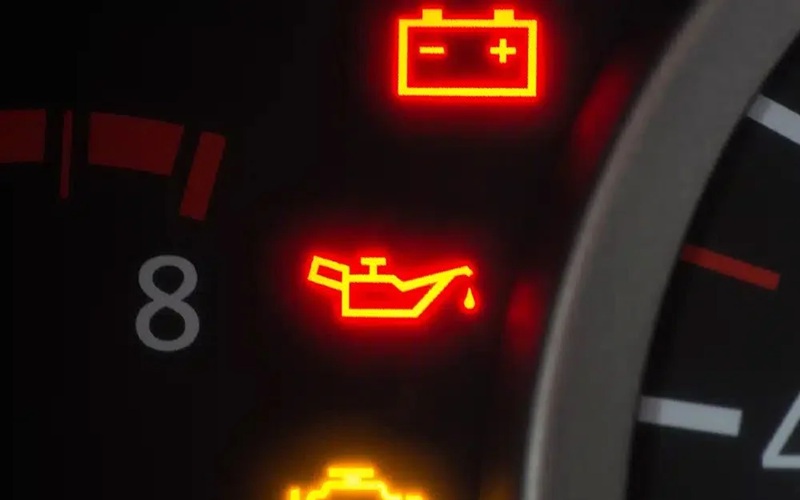The Lincoln Aviator remains the pinnacle of luxury SUV engineering, combining sophisticated power with refined technology. At the heart of this premium vehicle lies a meticulously engineered powertrain that requires specific maintenance procedures to ensure optimal performance and longevity. Whether you’re a current owner or considering a purchase of this exceptional SUV, understanding the proper engine service requirements is essential for maintaining the Aviator performance, efficiency, and value over time.

Engine Specifications and Design
The Lincoln Aviator comes equipped with a twin-turbocharged 3.0L V6 engine featuring Auto Start-Stop Technology. This advanced powerplant offers:
- 400 horsepower at 5,500 RPM
- 415 Nm of torque at 3,000 RPM
- Direct injection fuel system
- Variable valve timing
- Aluminum block and head construction for weight reduction
- Auto Start-Stop Technology to improve fuel efficiency
This sophisticated engine is paired with a 10-speed SelectShift automatic transmission featuring paddle activation, enabling both seamless automatic operation and driver-controlled shifting when desired. The Aviator is available in both front-wheel drive (standard on lower trims) and all-wheel drive configurations (optional on lower trims, standard on higher trims).
Intelligent Oil-Life Monitor
One of the most advanced features of the Aviator is the Intelligent Oil-Life Monitor system, which eliminates the guesswork in determining when an oil change is necessary.
How the System Works
Unlike traditional fixed-interval maintenance schedules, the Intelligent Oil-Life Monitor analyzes various operating conditions to determine the optimal time for an oil change:
- Engine operating temperatures
- Cold starts and short trips
- Extended highway driving
- Climate conditions
- Engine load and RPM variations
- Idle time
The system continuously monitors these factors and calculates the remaining oil life as a percentage displayed in the driver information center. When oil life reaches 15%, the system will prompt you to schedule service soon. When it reaches 0%, service is required as soon as possible.
Regular Maintenance Schedule
While the Intelligent Oil-Life Monitor provides customized recommendations, these general service intervals serve as a baseline for maintaining your Aviator engine:
Oil and Filter Changes
- Standard interval: Every 8,000 to 12,000 kilometres (follow monitor recommendations)
- Severe conditions: Service may be required more frequently
- Oil type: SAE 5W-30 synthetic motor oil
- Oil capacity: 6.0 litres with filter change
Using the recommended oil type is crucial for maintaining proper lubrication, particularly with the twin-turbocharger system, which operates at high temperatures.
Air Filter Replacement
The engine air filter prevents contaminants from entering the combustion chambers:
- Standard interval: Every 30,000 kilometres
- Filter minder system: Replace when indicated by the vehicle’s monitoring system
- Inspection: Check during regular service visits for excessive dirt accumulation
The Aviator uses a high-capacity air filter designed to protect the precision components of the turbocharged engine while maintaining optimal airflow.
Spark Plug Replacement
The 3.0L twin-turbocharged V6 utilizes iridium-tipped spark plugs for extended service life:
- Standard interval: Every 160,000 kilometres
- Inspection: Check during major service intervals
- Specification: Factory-specified gap settings must be maintained
Professional service is recommended for spark plug replacement due to the complexity of accessing plugs in the V6 configuration.
Cooling System Service
The cooling system is particularly critical for the twin-turbocharged engine:
- Coolant inspection: Every 15,000 kilometres
- Coolant replacement: Every 100,000 kilometres or five years
- System capacity: Approximately 12 litres
- Coolant type: Use only the specified Lincoln coolant to maintain corrosion protection
The twin-turbocharger system integrates with the cooling system and requires proper maintenance to prevent heat-related damage.
Fuel System Maintenance
The direct injection fuel system benefits from periodic service:
- Fuel filter: Lifetime filter under normal conditions (no scheduled replacement)
- Injector cleaning: Consider professional cleaning service every 60,000 kilometres
- Fuel quality: Use of premium 91 octane fuel is recommended for optimal performance
While the Aviator can operate on regular 87 octane fuel, consistent use of premium fuel helps maintain peak performance and can prevent carbon buildup common in direct injection engines.
Grand Touring PHEV-Specific Maintenance
The Lincoln Aviator Grand Touring plug-in hybrid model requires additional maintenance considerations:
High-Voltage Battery System
- Battery inspection: Every 20,000 kilometres
- Cooling system check: Inspect dedicated battery cooling system during regular service
- Performance evaluation: Diagnostic check of battery capacity and charging system
Electric Drive Unit
- Fluid inspection: Every 30,000 kilometres
- System check: Verify proper operation of the electric drive components
- Cooling system: Separate inspection from the main engine cooling system
Charging System Maintenance
- Charge port inspection: Check for damage or debris during regular service
- Charging cable: Inspect for wear, damage, or connector issues
- Home charging equipment: Recommend professional inspection annually
Common Service Considerations
Several service items deserve special attention to maintain the Aviator engine performance:
Turbocharger System
The twin turbochargers require specific maintenance considerations:
- Cool-down period: Allow engine to idle briefly before shutdown after high-speed or heavy-load driving
- Oil quality: Premium synthetic oil is crucial for turbocharger bearing lubrication
- Intercooler: Inspect for debris or damage during regular service
- Boost system: Monitor for proper pressure and check for leaks in the air intake system
Direct Injection System
Direct injection systems are prone to carbon buildup on intake valves:
- Intake cleaning service: Consider professional cleaning every 60,000 kilometres
- Fuel quality: Premium fuel helps minimize deposits
- Driving habits: Regular highway driving at higher RPMs helps reduce carbon accumulation
Transmission Service
The 10-speed automatic transmission requires specific maintenance:
- Fluid inspection: Every 60,000 kilometres
- Fluid replacement: As needed based on condition
- Filter service: Internal filter typically serviced only when transmission is disassembled
Advanced Diagnostic Features
The Aviator includes sophisticated self-diagnostic capabilities that enhance maintenance planning:
Onboard Diagnostics
- Vehicle health report: Accessible through the central touchscreen
- System monitoring: Continuous evaluation of engine parameters
- Early warning: Detection of potential issues before they cause performance problems
Remote Diagnostics
- Connected vehicle technology: Allows for remote system checks
- Service notifications: Automated alerts when maintenance is required
- Dealer integration: Simplified service scheduling based on actual vehicle needs
Performance Optimization Through Maintenance
Proper maintenance doesn’t just prevent problems—it optimizes performance:
Fuel Efficiency Maintenance
- Oxygen sensor function: Critical for proper fuel mixture
- Mass airflow sensor: Keep clean for accurate air measurement
- Tire pressure: Maintain recommended pressures for optimal efficiency
- Engine breathing: Clean air filters and intake system for maximum airflow
Power Retention
- Carbon removal: Prevents power-robbing deposits
- Ignition system: Maintain proper spark for complete combustion
- Fuel system: Keep injectors clean for proper atomization
- Cooling system: Prevent heat-related power loss through proper cooling
When to Seek Professional Service
While knowledgeable owners can perform some maintenance tasks, certain situations warrant professional attention:
Warning Indicators
When dashboard warning lights appear:
- Check engine light (amber engine symbol)
- Oil pressure warning (red oil can symbol)
- Engine temperature warning
- Battery/charging system alert
These indicators may signal issues that require immediate professional attention.
Performance Changes
Noticeable changes in engine performance:
- Reduction in power or acceleration
- Unusual noises, particularly whistling or whining from the turbocharger area
- Excessive exhaust smoke or unusual odours
- Rough idling or hesitation during acceleration
Fluid Leaks
The Aviator uses sophisticated sealing systems, so any fluid leaks warrant inspection:
- Oil leaks (check under vehicle after parking)
- Coolant leaks (sweet smell, colored residue)
- Transmission fluid leaks (typically red or brown)
Scheduled Major Services
Certain services are best left to factory-trained technicians:
- 60,000-kilometre major service (comprehensive inspection)
- Timing chain assessment (at higher mileages)
- Turbocharger system inspection
- Direct injection system cleaning
Maintenance for Longevity
With proper care, the sophisticated Lincoln Aviator engine can provide exceptional service for many years:
- Follow the Intelligent Oil-Life Monitor’s recommendations
- Use only high-quality filters and fluids meeting Lincoln specifications
- Address minor issues promptly before they develop into major problems
- Consider the manufacturer’s extended service plans for long-term ownership
- Maintain detailed service records to enhance resale value
By adhering to these service guidelines, owners can ensure their Lincoln Aviator continues to deliver the refined performance, efficiency, and luxury that define this premium SUV.
Facts About the 2025 Lincoln Aviator Engine
- The twin-turbocharged 3.0L V6 in the Aviator features water-cooled bearings in its turbochargers, enabling the engine to maintain peak performance even under extreme conditions while extending the life of the turbochargers.
- Lincoln engineers developed a unique “anti-lag” turbocharger strategy for the Aviator that maintains turbo speed during gear changes, virtually eliminating turbo lag and providing immediate power when needed.
- The intelligent oil-life monitoring system in the Aviator analyzes over 30 different parameters to determine oil condition, including not just mileage but also engine temperature cycles, ambient conditions, and even driving style.
- The Aviator engine utilizes a special coating on its cylinder walls, known as “Plasma Transfer Wire Arc,” which reduces friction and improves durability so effectively that it’s derived from technology originally developed for high-performance racing engines.
- When operating in its eco mode, the Aviator engine can deactivate one of its turbochargers during light loads, significantly improving fuel efficiency while maintaining the ability to instantly reactivate it when power is needed.
*Disclaimer: Content contained in this post is for informational purposes only and may include features and options from US or international models. Please contact the dealership for more information or to confirm vehicle, feature availability.*


